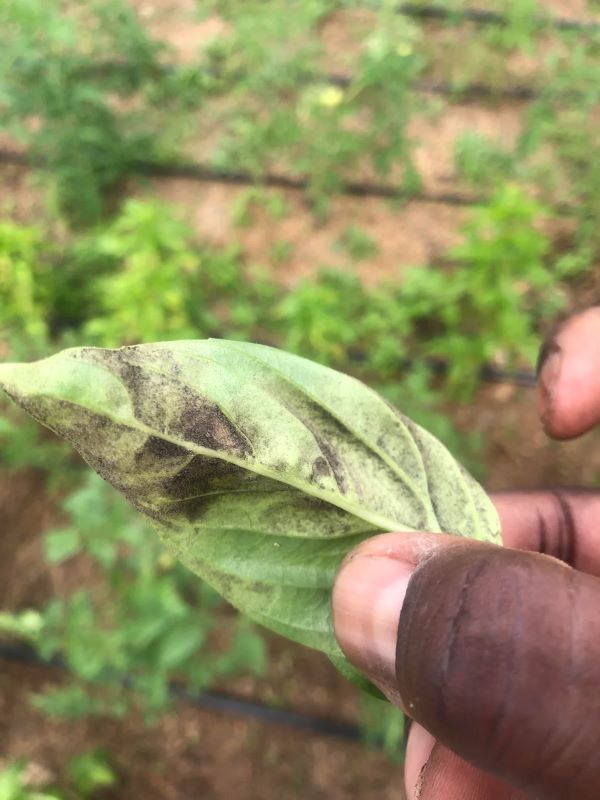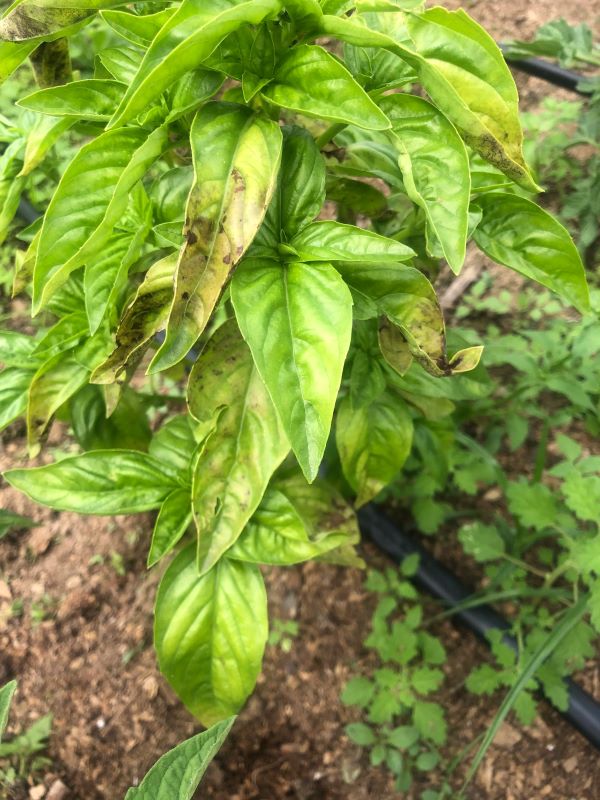Installing native plants is a great way to save money and support wildlife in your backyard, but one gardener has learned that you will only reap the benefits if you know how to properly care for the vegetation.
The gardener recently posted in the r/gardening subreddit, seeking help from fellow users after finding one of their plants damaged.


"I had excessive rain and my basil got flooded," the gardener wrote. "Few days later this fungus like stuff is killing the crop."
They shared a photo of their basil plants, which were starting to be covered in black and brown spots.
"1) what is it 2) can it be treated or should i cut my losses," the gardener asked.
Reddit users identified the damage as downy mildew. Researchers say this typically occurs on water-soaked plants and is often found on the underside of leaves. Knowing how to identify diseases like this is one of the best ways to keep your native and natural garden looking lush.
While natural weather events like heavy rains or flooding can damage your greenery, native plants still offer benefits for homeowners that should outweigh any concerns.
The U.S. Forest Service says that native plants adapt to their local climates and soil conditions, causing this vegetation to require less water and maintenance. These plants also typically do not require fertilizer or pesticides. Overall, homeowners could see over $300 of savings annually by installing native and natural plants.
Native plants also have huge benefits for your neighborhood's ecosystem. Vegetation like prairie grasses or desert plants are known for having deep root systems in the local soil and for reducing air pollution. Additionally, these plants can provide shelter and food for wildlife while supporting popular pollinators like bees and butterflies.
As the homeowner worried about the recent damage to their garden, other Reddit users gave advice on how to best protect their plants.
"Basil easily succumbs to diseases from too much water or humidity," one user wrote. "You can remove all the damage you'll never use and new growth will occur."
"When my basil gets like that, I take cuttings and start new plants," another said, while a third recommended avoiding installing plants in the same area of the garden to prevent future disease.
Join our free newsletter for easy tips to save more, waste less, and help yourself while helping the planet.









